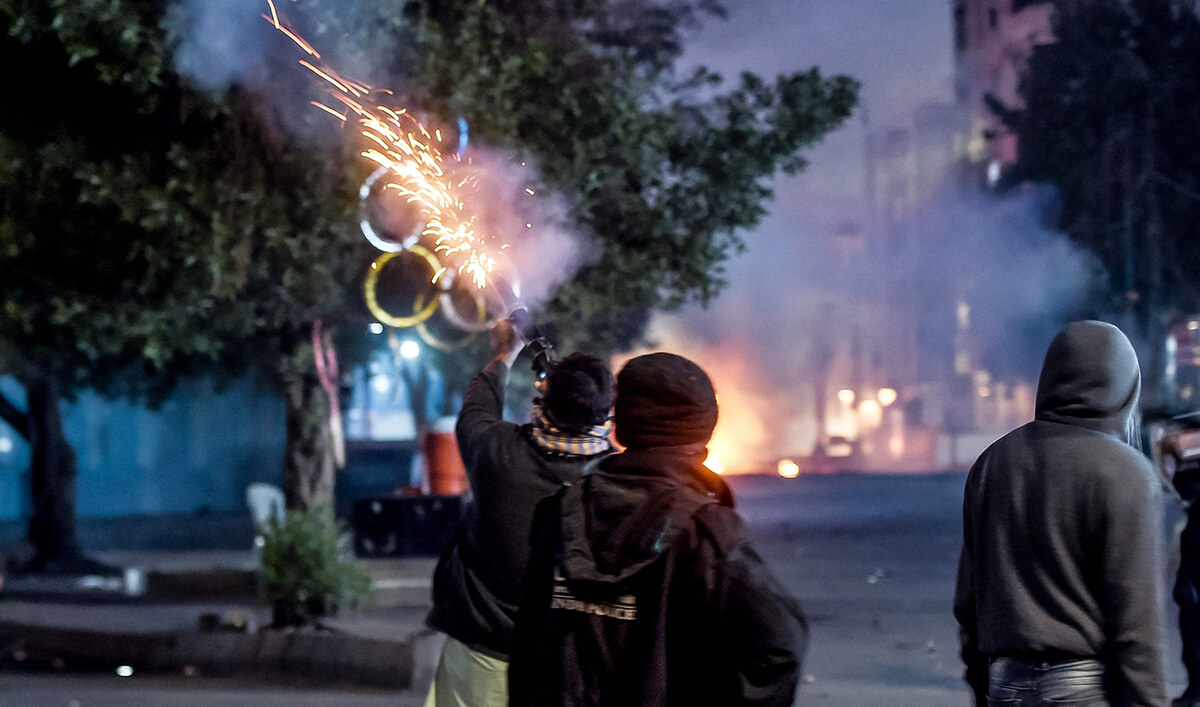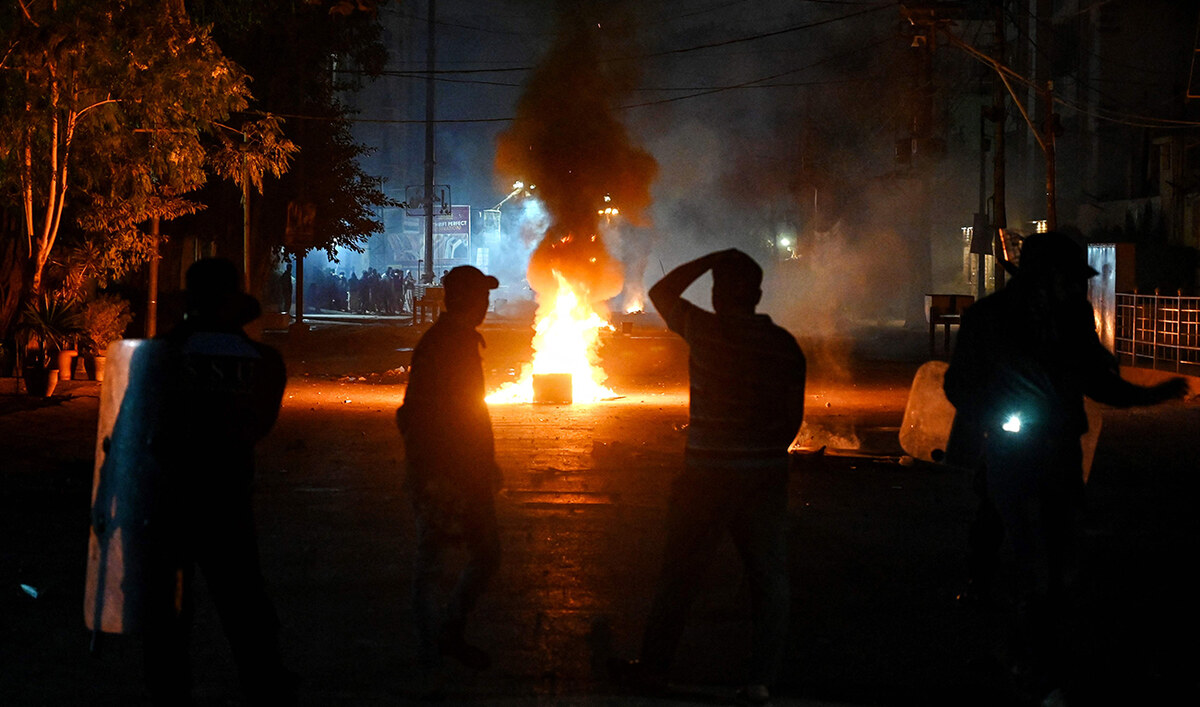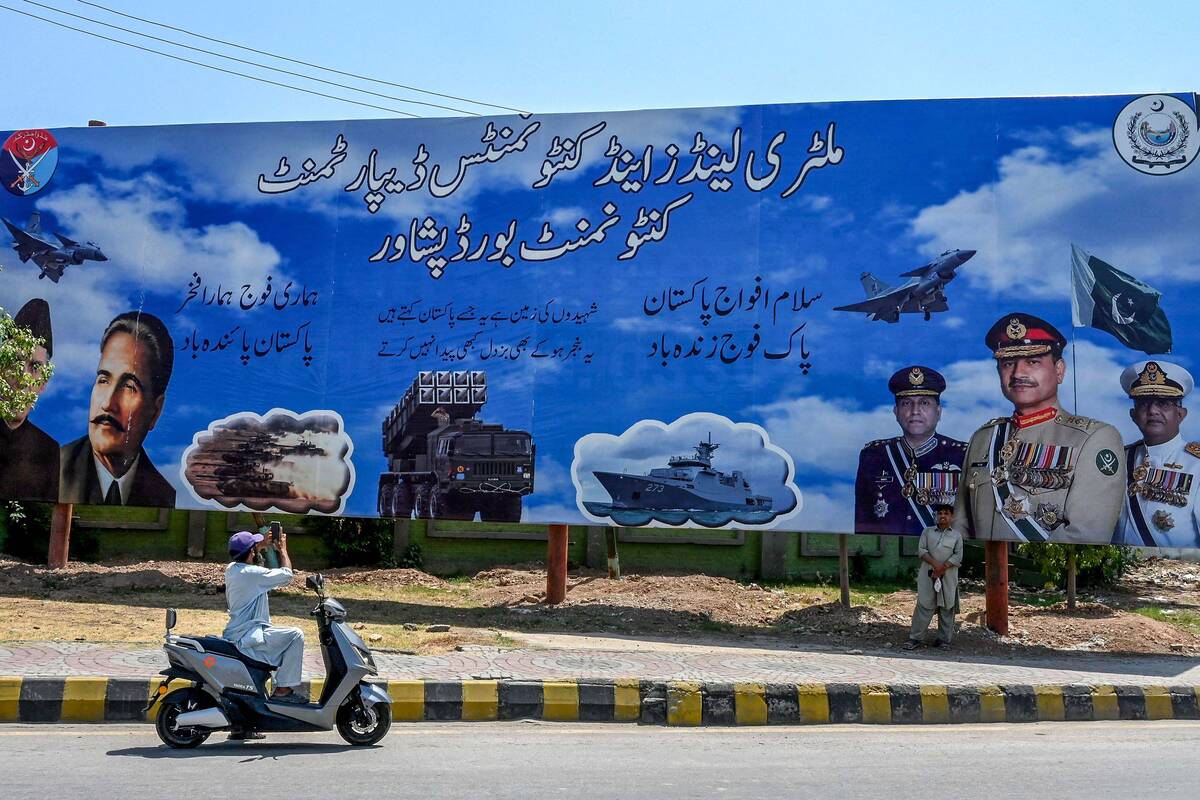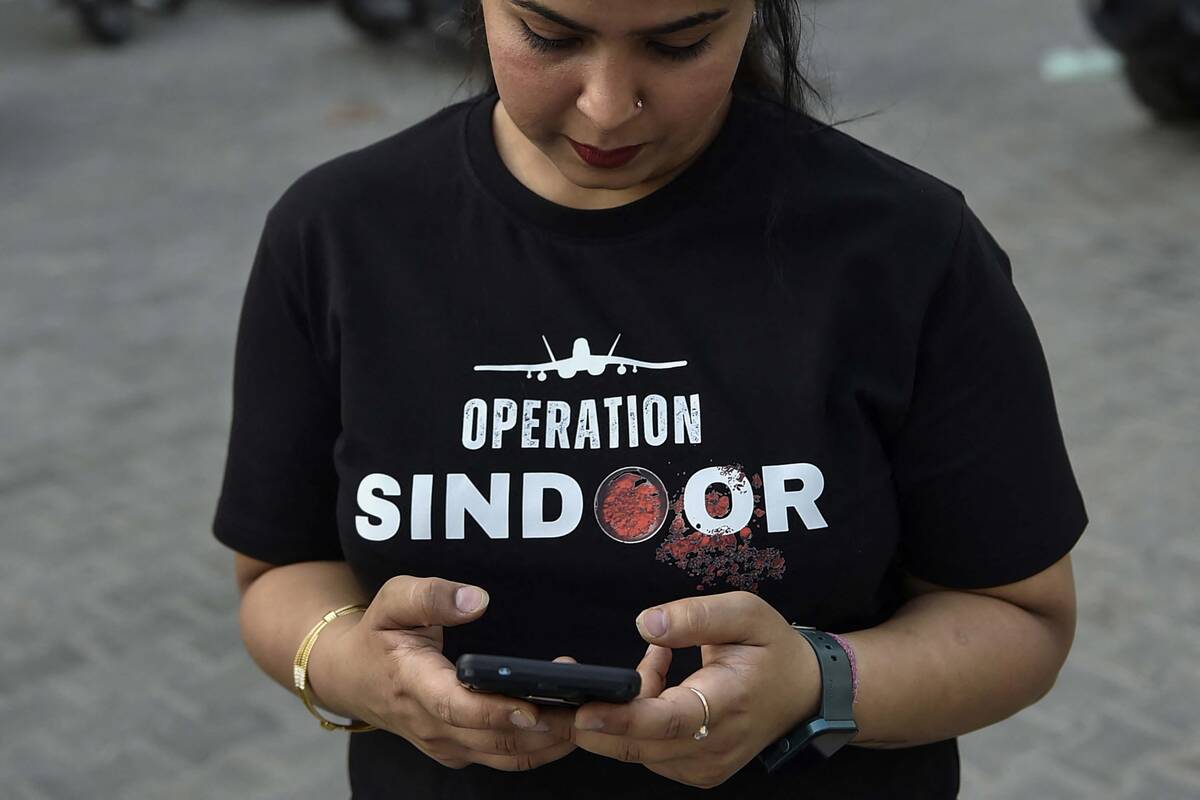KARACHI: The home minister of Pakistan’s southern Sindh province on Wednesday warned members of a religio-political party of stern action if they did not move their sit-in protests from Karachi’s busy locations to designated spots, a day after law enforcers clashed with the demonstrators in the port city.
Karachi police and the paramilitary Rangers force cracked down on protesters belonging to the Majlis Wahdat-e-Muslimeen (MWM) party on Tuesday morning, using tear gas to disperse them from the city’s busy Numaish Chowrangi, Malir and other locations. Demonstrators pelted the law enforcers with stones in response and chanted slogans against them.
The MWM has been leading sit-in protests at over 10 locations in Karachi since last week to protest violence in the northwestern Kurram district. With a population of around 600,000, Kurram has been plagued by tribal and sectarian violence for decades. A devastating ambush on a convoy of Shias on Nov. 21 in which gunmen killed 52 people, gave rise to sectarian clashes in the area that have since then claimed the lives of at least 136 people.
Karachi police has charged protesters under the country’s anti-terror law, saying that over 150 protesters fired directly at police officers with the intention to kill during Tuesday’s clashes in the city’s Malir district. Two police constables, Zaeem Abbas and Ayaz Gul, were injured in the gunfire, as per the police complaint. All in all, police said eight cops were injured during the clashes out of which three were injured due to firing by protesters.
“It is not possible for us to let the city fall victim to violence,” Sindh Home Minister Zia Ul Hassan Lanjar told reporters at a news conference. “It’s not possible for us to not protect the lives and property of citizens while sitting idle,” he added.

Police personnel fire tear gas shells to disperse protesters during a demonstration in Karachi on December 31, 2024, to condemn sectarian clashes in Pakistan’s Kurram district. (AFP)
He said the government was ready for talks with protesters but also warned that it would enforce its writ in the city.
“Against any illegal actions, the government will stand firm, the police will do its job, the Rangers will do their job and law enforcement agencies will carry out their responsibilities,” the minister said.
He said the Sindh government had extended protesters the offer to move their protests to designated spots across the city.
“We will stand with you, but this is not the way for our main Saddar area to be closed, for Shahra-e-Faisal to be closed, for the Ancholi area to be closed, for the Malir area to be closed, and to turn the city into a battlefield,” he said, referring to Karachi’s areas where the MWM is holding protests.
“You cannot do this. We will not compromise on this under any circumstances.”

Police personnel (front) disperse protesters (back) during a demonstration in Karachi on December 31, 2024, to condemn sectarian clashes in Pakistan’s Kurram district. (AFP)
Reiterating his offer of negotiations, Lanjar said Karachi’s additional Inspector-general of police and the city’s commissioner will hold talks with MWM since Sindh’s senior ministers had already met representatives of the party.
Meanwhile, senior MWM leader Allama Baqir Hussain Zaidi announced that the party’s protests in Karachi will continue.
“The ongoing sit-ins will continue wherever they are being held and alternative routes will remain open,” Zaidi said in a video message. “The community is urged to participate in the sit-ins in an organized manner and to consider it both a personal and religious obligation to join tomorrow evening’s protest gathering.”
He announced that the group will hold a protest rally on Thursday at 4:00 p.m. at Numaish Chowrangi, stressing that it will be a peaceful one.
A grand jirga — a traditional council of political and tribal elders — has been attempting to mediate between the rival factions in Kurram to enforce peace.



















